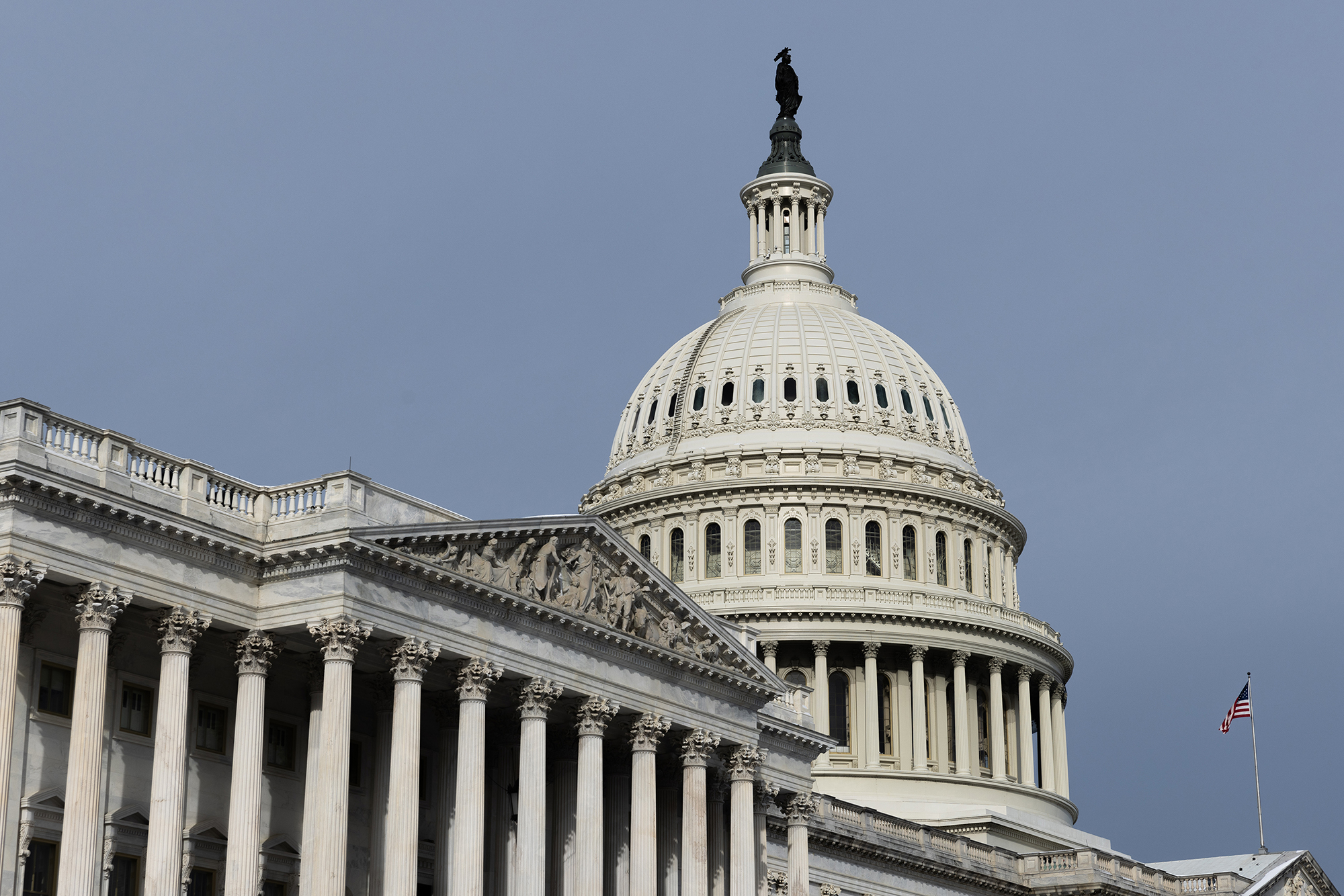Trump's unified majority: Will Republicans gain complete control over the U.S. Congress?
While the world was focused on the U.S. presidential elections, whose outcome is already known, equally important elections were taking place in America – for both chambers of Congress. One of these elections still has an open ending. Who could gain the majority in the House of Representatives, and what could happen if the Republicans monopolize all power – insights from RBC-Ukraine journalist Dmitry Levitsky.
Contents
- Why the House of Representatives elections are important
- Who is leading the race for the House of Representatives
Alongside the presidential elections, the U.S. held elections for the Senate and the House of Representatives – the two chambers of the American Congress. Following the Democrats' defeat in West Virginia, Ohio, and Montana, the Republicans managed to secure a majority in the Senate, which had previously been under the control of the Democratic Party.
Now, the main "battleground" between the Democrats and Republicans is unfolding around the House of Representatives. If the Republican Party can maintain control over the House, newly elected President Donald Trump will have complete control of power, allowing him to implement all legislative initiatives without hindrance.
The current Speaker of the House, staunch Trump supporter Mike Johnson, has stated that the Republicans have already prepared an ambitious agenda for the first 100 days of Trump's presidency. The primary focus of the Republican agenda will be tax cuts, securing the southern border, and reducing federal agencies. Trump himself has promised that upon returning to the White House, he will begin mass deportations and "pay back his enemies," presumably referring to the Democrats.
To swiftly and easily execute this plan, the Republican Party, of course, needs control over both the Senate and the House. If the Democratic Party manages to gain a majority in the House, Trump may encounter similar obstacles that Republicans created for Democratic President Joe Biden over the past two years.
Why the House of Representatives elections are important
In the lead-up to the American elections, Biden issued an order to allocate all remaining funds from the military assistance package approved by Congress in April of this year to Ukraine. Therefore, the question of continuing support for Ukraine will fall on the shoulders of the new Senate and House of Representatives.
During the campaign, Trump repeatedly criticized Biden's administration for its assistance to Ukraine and suggested providing support to Ukrainians "on credit." Due to such statements from Trump, there were even concerns in the EU that if he returned to the White House, he might completely cease assistance to Ukraine in its war with Russia.
"I think Zelensky is probably the best salesman among all politicians who have ever lived. Every time he comes to our country, he leaves with $60 billion. He just left with $60 billion, went home, and announced that he needs another $60 billion. This will never end. I will resolve this even before I take the White House," Trump stated last summer.

Speaker Mike Johnson announced the agenda for Trump's first 100 days (photo: Getty Images)
Long before the elections, Trump's policies negatively impacted Ukraine. Last fall, it was precisely because of his allies in the House of Representatives (the so-called "Trumpists") that the American Congress could not quickly allocate new funds to support Ukraine, and the consideration of a $60 billion package turned into a six-month delay.
The previous delay in American assistance led to a shortage of weapons (primarily artillery shells) in the Ukrainian army, resulting in defeats on the front, including the loss of Avdiivka and Russia's attempt to launch a renewed offensive in the Kharkiv region.
It is unclear how real Trump's past threats were and whether he is truly prepared to stop supporting Kyiv, but control over both chambers of Congress would allow him to implement any initiative without obstruction. This includes the potential for credit assistance to Ukraine, which has support within the Republican Party.
Regarding domestic policy, Trump, under such a scenario, would be able to execute the 100-day plan announced by Johnson. This could include starting large-scale deportations of illegal immigrants and cutting down the federal government.
However, experts believe that with such a totality of power, there is another side to the coin. Along with full power, the Republicans and Trump will also bear full responsibility for the situation in the U.S., noted Oleg Prelovsky, an associate expert at the "Institute of American Studies," in a comment to RBC-Ukraine.
"Now it won't be possible to blame opponents for anything. Because now the fullness of power will be in the hands of Trump or his team. The Republicans will have a majority, and thus they will be the first to face societal criticism," he explained.
However, according to Prelovsky, the balance of power in the U.S. will remain intact, despite Republican control over the White House, Senate, and House.
"The American constitution, although written in the 18th century, was not crafted by foolish people. It was designed with the understanding that no matter the outcome, it would not lead to authoritarianism and unilateral power. And that is very important," the expert added.
Who is leading the race for the House of Representatives
To control the House of Representatives, one party needs to secure at least 218 seats. The current distribution of seats is as follows: 199 seats are already held by the Democrats, while the Republicans have 211. However, the vote counting is still ongoing, and the situation could change dramatically, as the election results may hinge on one or several seats.

It is still unclear which party will win the elections for the House of Representatives (photo: Getty Images)
The Republican Party is confident that it will maintain control over the House after successfully "turning over" the Senate. "Republicans are ready to have a unified government in the White House, Senate, and House of Representatives," Speaker Johnson stated.
However, the Democratic Party is far from conceding defeat in the House elections. After Democrats managed to defeat two Republicans in New York, their path to a majority runs through Arizona, Oregon, and California, said House Minority Leader Hakeem Jeffries.
A significant portion of the election results for the House depends on the western states, especially the populous California, where the results for a dozen seats remain uncertain. The counting in these states has been prolonged, as candidates from both parties are running almost neck and neck in several districts, meaning the election results could depend on a few hundred or thousand votes.
And although neither party dominates the path to a majority, the Republican Party's victory appears more likely than the reverse. Even if the majority in the House remains with the Republicans, the advantage over the Democrats will be just a few seats. However, this will grant Trump full power for at least the first two years of his presidency – until the next House elections.
***
It is currently difficult to predict how the elections for the House of Representatives will ultimately conclude and what decisions Republicans and Trump might make regarding Ukraine if they gain full power. However, one can hope that Kyiv, under such a scenario, will be able to maintain support from Washington, leveraging long-standing good relations with both American parties, as well as the experience of cooperation with Trump during his first term.
This material was prepared using publications from The New York Times, Associated Press, Politico, statements from future U.S. President Donald Trump, Speaker of the House Mike Johnson, and House Minority Leader Hakeem Jeffries, as well as comments from associate expert Oleg Prelovsky from the "Institute of American Studies."